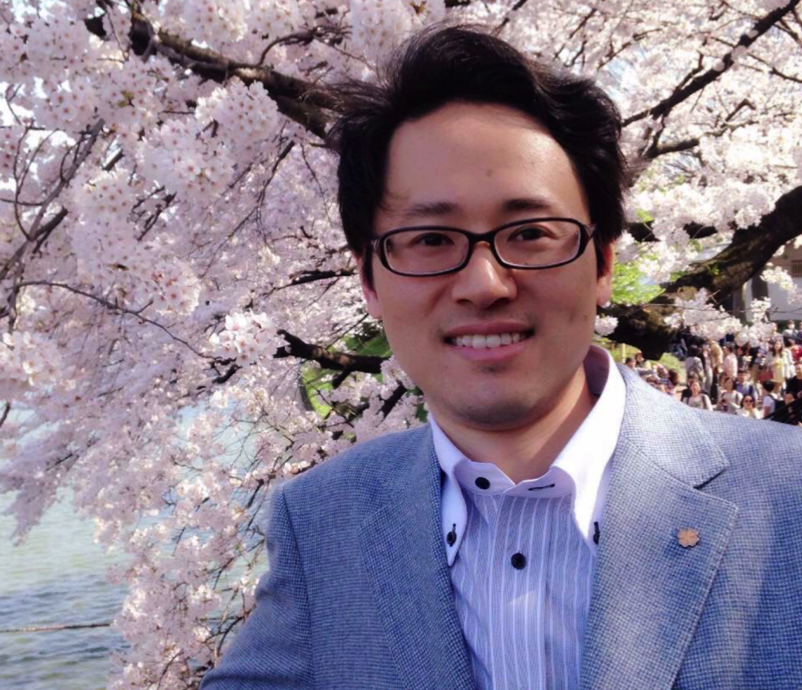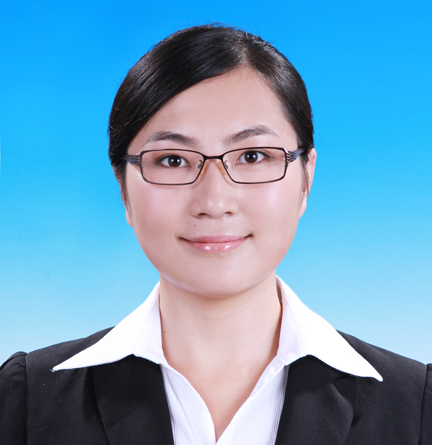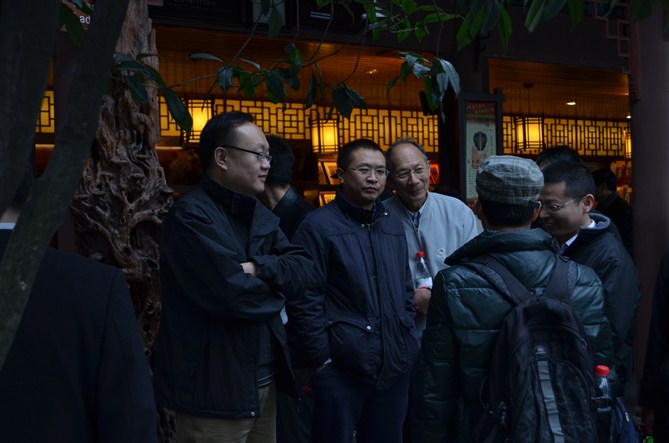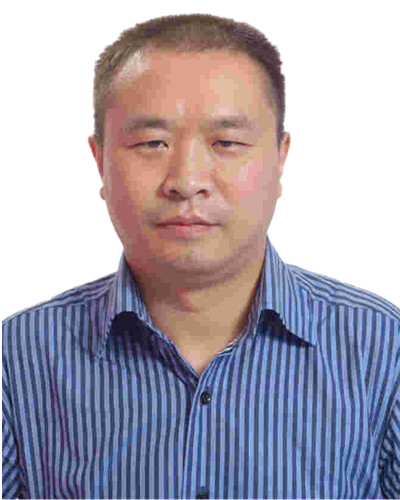个人简介
席在荣,男,1969年9月8日出生,现为中国科学院数学与系统科学研究院研究员。
1988年湖南常德师范学校毕业,
1991年湖南省高等教育自学考试数学专科毕业(国防科技大学主考),
1993年湖南省高等教育自学考试数学本科毕业(国防科技大学主考),
1997年7月于郑州大学获得理学硕士学位,
2000年7月于中国科学院数学与系统科学研究院获得控制论专业博士学位,
2002年5月在清华大学电气工程博士后流动站完成博士后工作,
2004年获教育部自然科学一等奖,
2005年获教育部自然科学二等奖及山东省自然科学三等奖,
2008年获国家自然科学二等奖等,
2006-2008年曾任IEEE Control System Society, Beijing Chapter秘书长,
IEEE Senior Member;
中国自动化学会控制理论专业委员会委员;
中国人工智能学会智能空天系统专业委员会委员;
《系统科学与数学》、《控制理论和应用》编委等学术职务。
主持并参加过国家自然科学基金、国家自然科学基金重大项目、重点项目及973项目等,
已发表学术论文100余篇,包括IEEE Transactions on Automatic Control, Automatica, IEEE Transactions on Control Systems Technology,Journal of Physics A Mathematical & Theoretical及Physical Review A等国际著名学术刊物。
研究方向
非线性系统分析和合成
电力系统和机械系统
量子控制
量子机器学习
学术论文
-
Passivity-based stabilization and H 8 control of the Hamiltonian control systems with dissipation and its applications to power systems
This paper considers the stabilization and H1 control of the Hamiltonian control systems with dissipation. Certain
-
Nonlinear decentralized controller design for multimachine power systems using Hamiltonian function method
In this paper, we first express a multimachine power system as a Hamiltonian control system with dissipation. Then, using the Hamiltonian function method a decentralized excitation control scheme, as a static measurable feedback, is proposed to stabilize the multimachine power system. Then, it is shown that the control scheme with properly chosen parameters is also an H ∞ control, which solves the problem of disturbance attenuation simultaneously. Finally, the design technique is demonstrated by a three-machine power system.
-
A switching algorithm for global exponential stabilization of uncertain chained systems
This note deals with chained form systems with strongly nonlinear unmodeled dynamics and external disturbances. The objective is to design a robust nonlinear state feedback law such that the closed-loop system is globally Kexponentially stable. We propose a novel switching control strategy involving the use of input/state scaling and integrator backstepping. The new features of our controllers include the ability to achieve Lyapunov stability, exponential convergence, and robustness to a set of uncertain drift terms.
-
Non-Markovian entanglement dynamics between two coupled qubits in the same environment
We analyze the dynamics of the entanglement in two independent non-Markovian channels. In particular, we focus on the entanglement dynamics as a function of the initial states and the channel parameters, such as the temperature and the ratio r between ω0, the characteristic frequency of the quantum system of interest, and ωc, the cut-off frequency of the Ohmic reservoir. We give a stationary analysis of the concurrence and find that the dynamic of non-Markovian entanglement concurrence {\cal C}_{\rho}(t) at temperature kBT = 0 is different from the kBT > 0 case. We find that 'entanglement sudden death' (ESD) depends on the initial state when kBT = 0, otherwise the concurrence always disappears at a finite time when kBT > 0, which means that the ESD must happen. The main result of this paper is that the non-Markovian entanglement dynamic is fundamentally different from the Markovian one. In the Markovian channel, entanglement decays exponentially and vanishes only asymptotically, but in the non-Markovian channel the concurrence {\cal C}_{\rho}(t) oscillates, especially in the high temperature case. Then an open-loop controller adjusted by the temperature is proposed to control the entanglement and prolong the ESD time.
-
The entanglement dynamics of the bipartite quantum system: toward entanglement sudden death
We investigate the entanglement dynamics of the bipartite quantum system between two qubits with the dissipative environment. We begin with the standard Markovian master equation in the Lindblad form and the initial state which is prepared in the extended Werner-like state: ρΦAB(0). We examine the conditions for entanglement sudden death (ESD) and calculate the corresponding ESD time by the Wootters concurrence. We observe that ESD is determined by the parameters such as the mean occupation number of the environment N, amount of initial entanglement α and the purity r. For N = 0, we get the analytical expressions of both ESD condition and ESD time. For N > 0 we give a theoretical analysis that ESD always occurs, and simulate the concurrence as a function of γ0t and one of the parameters N, α and r.
-
Optimal Decoherence Control in non-Markovian Open, Dissipative Quantum Systems
We investigate the optimal control problem for non-Markovian open, dissipative quantum system.
-
Nonlinear decentralized saturated controller design for power systems
A direct method of constructing a decentralized saturated controller is very important in the controller design of multimachine power systems. Among the existing designs the author first constructed a state feedback, then saturated the controller. However, the author could not prove that this saturated controller was valid. In this paper a multi-machine power system as a Hamiltonian control system with dissipation is first represented. Then using a Hamiltonian function a decentralized saturated excitation control scheme, which is a static measurable feedback, is proposed. Last, the design is discussed in detail on a three-machine power system. Simulations show that the saturated, simple control law works well.
-
On output feedback stabilization of uncertain chained systems." In Control, Automation
This paper deals with chained form systems with strongly nonlinear disturbances and drift terms. The objective is to design robust nonlinear output feedback laws such that the closed-loop systems are globally exponentially stable. The systematic strategy combines the input-state-scaling technique with the so-called backstepping procedure.
-
Global adaptive output regulation of a class of nonlinear systems with nonlinear exosystems
This paper deals with global output regulation with nonlinear exosystems for a class of uncertain nonlinear output feedback systems. The circle criterion is exploited for the internal model design to accommodate the nonlinearities in the exosystems, and the explicit conditions are given for the exosystems such that the proposed internal model design can be applied. The uncertainties of the output feedback systems are in the form of unknown constant parameters, and adaptive control techniques are used to ensure the global stability of the proposed control design for output regulation.
-
Output feedback exponential stabilization of uncertain chained systems
This paper deals with chained form systems with strongly nonlinear disturbances and drift terms. The objective is to design robust nonlinear output feedback laws such that the closed-loop systems are globally exponentially stable. The systematic strategy combines the input-state-scaling technique with the so-called backstepping procedure. A dynamic output feedback controller for general case of uncertain chained system is developed with a filter of observer gain. Furthermore, two special cases are considered which do not use the observer gain filter. In particular, a switching control strategy is employed to get around the smooth stabilization issue (difficulty) associated with nonholonomic systems when the initial state of system is known.
-
Classical and quantum control of a simple quantum system
A qubit which is prepared in one of two non-orthogonal states and subjected to bit-flipping noise is considered. The objective is to use measurement and feedback control to correct the state of the qubit. Three classical schemes using projective measurements, i.e. discrimination and re-preparation, do nothing and random preparation, have been discussed, and are not optimal with respect to a performance which is quantified by the average fidelity of the corrected state compared to the initial state. In addition, one quantum scheme using a non-projective measurement with an optimum measurement strength achieves the best trade-off between gaining information about the system and disturbing it through measurement back-action. The performance of a quantum control scheme outperforms the classical schemes. Furthermore, no universal corrected scheme is discussed.
-
Adaptive rejection of non-linear disturbances in extended non-linear output feedback systems
This paper deals with asymptotic rejection of disturbances generated from non-linear exosystems for uncertain nonlinear systems in an extended output feedback form, which allows the vector field coupled with the system input to have different nonlinear functions of the system output as its elements. A new internal model design is proposed to deal with nonlinear functions of the system output that are coupled with the input and the unknown disturbance. Adaptive control techniques are then used to deal with the uncertainty in the system. The proposed adaptive disturbance rejection algorithm with the new internal model design ensures the asymptotic rejection of the unknown nonlinear disturbance and the boundedness of all the variables.
-
Controlled population transfer for quantum computing in non-Markovian noise environment
We propose a control approach to transfer the population between selected quantum states in the non-Markovian open quantum system. This transfers, assisted by single qubit phase shift operations can generate universal logic gates for quantum computing. We find that the occupation probability behaves differently for different environmental conditions, such as the temperature and the ratio between the frequency of the quantum system of interest, and the cut-off frequency of Ohmic reservoir. We provide an active control over non-Markovian open quantum system for the quantum state engineering.
-
Optimal Dynamical Decoupling Sequence for Ohmic Spectrum
We investigate the optimal dynamical decoupling sequence for a qubit coupled to an ohmic environment.
-
Dynamical control of quantum correlations in a common environment
Quantum correlations (QC) are generally considered to be the crucial resource for quantum information processing, however, in practice, the inevitable interaction of the quantum systems with the environment can cause decoherence and thus destroy the QC. In this paper, by comparatively studying the model of a two-qubit system in a common environment with and without dynamical control, we show that dynamical control can be exploited to protect QC from being completely destroyed for a long time. For certain product states, the dynamical control can even be used to generate the QC.
我的团队

- 崔巍

- 潘宇

- 宋洪婷
我的相册

联系方式
中国科学院数学与系统科学研究院南楼524
010-82541825
zrxi@iss.ac.cn

